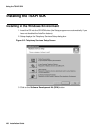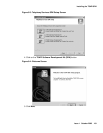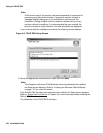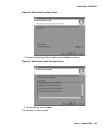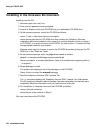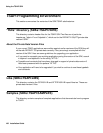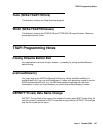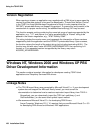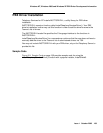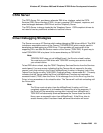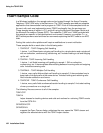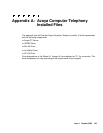
Using the TSAPI SDK
188 Installation Guide
Version Negotiation
When opening a stream, an application may negotiate with a PBX driver to agree upon the
version of private data protocol to be used (as described in "Private Data Version Control"
in the TSAPI for Avaya MultiVantage Programmer's Guide It is also important that the
DEFINITY private data library can support this protocol. To ensure this and to assist in the
construction of a proper version string, the attMakeVersionString() API may be used.
This function accepts a string containing the numerical range of versions supported by the
application, e.g., "1-3", and returns (in a caller-supplied buffer) a "filtered" string to be
passed in the version negotiation, e.g., "AT&T Definity G3#2".
This string includes the vendor name, and represents the intersection of those versions
supported by both the application and the DEFINITY private data library. Upon success,
the function returns the length of the output string (not including terminating NULL). The
function may fail with return value ACSERR_BADPARAMETER if the input string is ill-
formed, or, if no requested version is supported by the library, may return
ACSERR_APIVERDENIED.
Windows NT, Windows 2000 and Windows XP PBX
Driver Development Information
This section contains important information for developers creating TSAPI client
applications and Telephony Services PBX drivers.
Linkage Notes
● The TDI.LIB import library was generated by Microsoft Visual C++. If your development
system does not support the Microsoft library format, you must consult its
documentation to determine how to create an equivalent import library from TDI.DLL.
Alternatively, you can dynamically import the TSDI via LoadLibrary () and
GetProcAddress () or use some other symbol import method.
● We recommend Microsoft Visual C++ for developing PBX Drivers.
Avaya Computer Telephony R11.1 V1 requires that you use Microsoft Visual C++ 6.0
for developing PBX drivers and Windows .EXE applications.



